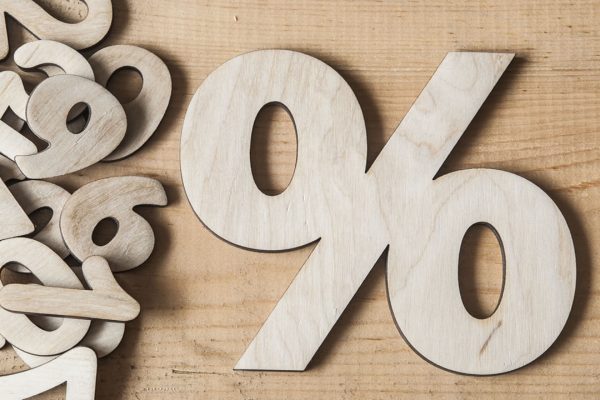How Do You Discover What Today's Mortgage Rates Are?

How Do You Discover What Today’s Mortgage Rates Are?
If you are new to home ownership and mortgage shopping, you may not know that mortgage rates change frequently. Lenders across the nation post weekday mortgage rates to a comprehensive national survey so that you know what a competitive rate is.
Understanding What Mortgage Rates Are
When it comes to being financially responsible, do your homework. When preparing to enter a home loan, one of the most important areas to research are interest rates and how they will affect your loan pricing. Learning what determines your rate will help you choose which lender is offering you the best deal.
As part of the lending agreement, a lender will affix an interest rate to the repayment agreement. This rate will affect how much interest you pay over the life of the loan and will affect your monthly loan payment. Even seemingly small adjustments to the interest rate can translate into thousands of dollars over the loan term.
Finding the Current Mortgage Rates
According to Bankrate.com, “ the average 30-year fixed mortgage rate was 3.81%, down from 3.86% a week ago. 15-year fixed mortgage rates fell to 3.16% from 3.20% a week ago. (You can learn about other loans and rates by visiting their site).
(An important side note: The Federal Reserve’s interest rate policies don’t directly affect mortgage rates. According to Bankrate, “ Long-term rates, such as 30-year fixed-rate mortgages, are more closely tied to the 10-year Treasury yield.
There’s little correlation between the Fed’s rate decisions and mortgage rates.”)
The best thing to do to avoid an interest rate rise, is to lock in a rate when it is low.
How the Economy Affects Mortgage Interest Rates
Inflation, economic growth indicators, Federal Reserve policies, the bond and housing markets all impact mortgage interest rates.
Better your chances of locking in a low rate by: 1) working on having a good credit score; 2) keeping your debt-to-income ratio low; 3) making sure your bills are paid in a timely manner; and 4) making sure your lending accounts are in good standing. (Read on to learn more about the importance of your credit score when locking in a low mortgage rate.)
How Does Your Credit Score Impact Your Mortgage Rate?
If you are new to credit accounts, you might not understand their connection with seeking future loans (house, car, etc.) and why excellent credit is so important. Upon entering into a credit relationship with a lender, you assume the responsibility of repaying credit debt in the contractual, monthly installments set up. Late or missed payments result in late fees and negative reports on your credit report history, bringing down your overall credit score. Conversely, if you make your pay-back payments timely, you are rewarded with positive factors that contribute to a higher credit score.
“A credit score tells lenders about your creditworthiness (how likely you are to pay back a loan based on your credit history). It is calculated using the information in your credit reports. FICO® Scores are the standard for credit scores—used by 90% of top lenders,” FICO said.
Credit scores determine your ability to borrow money in the future so they are not to be taken lightly. They are the main tool a lender uses to decide if they feel they can lend you money. Low credit scores or negative reports make you a risky candidate for loans. This can result in loan applications being denied or you being assessed a higher interest rate with your loan and fees.
Negative information on your credit report stays there for 7-10 years, allowing lenders to have a broader range to evaluate your credit history. This may seem unfair if you are a potential borrower suffering from a poor credit history, but it protects lenders from lending money that is never repaid.
What Factors do Lenders Evaluate Before Assigning a Mortgage Rate to a Loan?
While you can’t control the economic factors that can influence your mortgage rate, you can affect more than you realize. Yes, your credit score, as was mentioned above, is a key factor, but these other factors also influence if your rate is higher or lower than average:
- Your down payment
- property location
- loan amount/closing costs
- loan type
- loan term
- interest rate type
A high down payment (like 20 percent of purchase price) reduces the lender’s risk so borrowers can often secure a lower interest rate.
Also, if you choose to have your closing costs and loan fees rolled into your loan, expect to have a higher interest rate than the borrower that pays them at closing.
Mortgage rates also hinge on the type of mortgage you select, the loan term and the interest type. Borrowers pay much lower interest rates for shorter-term loans than longer-term loans because they are paying off the mortgage more quickly.
Adjustable-rate mortgages come with lower initial rates than fixed-rate loans, but when the loan resets, rates can change with the market for the rest of the loan term.
Use a Mortgage Calculator to Help You Learn What You Can Afford
Our mortgage calculator can help you assess your monthly mortgage by having you enter your interest rates, down payment, loan amount and loan term. This is a handy tool for learning what you can and cannot afford.
Mortgage calculators give borrowers an approximation of monthly mortgage costs, BUT depending on your specific loan, your monthly mortgage amount could change. Factors that influence monthly mortgage amounts include: 1) an adjustable-rate mortgage (ARM) instead of a fixed rate; 2) changes in property taxes; 3) homeowners’ insurance costs; and 4) delinquent payments that add late-payment fees.
Discuss with your lender what possible monthly mortgage changes you could experience. Some loan packages lock in a fixed rate but it will change to an ARM after a period of years.
If you take out a mortgage with variable interest, ask your lender what your monthly payment will be if the rate goes up by 2%. If your budget would be too tight with this amount, a fixed interest rate may make more sense! Make sure you know what you are signing up for before putting your signature on anything.
